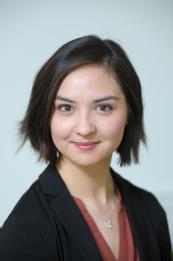Deborah Brewis
Biography
BA, MPhil
Submitted PhD in February 2016, awaiting viva in April 2016.
An early-career researcher of management and organisation, with a focus in critical diversity studies, at University of Warwick. She will be joining Warwick’s Institute of Advanced Studies as an Early Career Fellow in April 2016, remaining affiliated with Warwick Business School and mentored by Dr Deborah Dean.
Deborah’s research interests span (in)equality, diversity and inclusion; critical management studies; gender and sexual identity; professional identities; feminisms; discourse; cultural representations of work and organising, and qualitative methods.
She is currently working on further developing doctoral research on diversity practitioners and on ongoing collaborative projects. Her plans for future work are in the areas of new media work, in particular the emergent occupation of ‘Social Talent’. The specific topics of interest that this raises are the relationship between work and life, and of authenticity when the self is ‘brand’; cultures of confidence/anxiety; issues of inequality of representation and access to new media work; and emotion work in dealing with online ‘hate’.
An active member of the scholarly community with experience working in a policy environment; teaching on management and organisation; and a track record of fostering links among scholars, between scholars and artists, and engaging the public in academic work. During her PhD, Deborah worked with the Welsh Government in a research capacity to produce a Government Social Research report on inequality in access to health services in Wales (gender, sexual identity, and gender reassignment) as part of an ESRC PhD Internship. She also organised a number of events for the university, such as a public engagement research poster exhibition as part of the ESRC Festival of Social Sciences 2014 and a workshop funded by WBS Create engaging students in the idea of artists’ interventions in organisations.
She has taught in the areas of organisational behaviour, management, equality and diversity, and discourse analysis.
She has also conducted freelance research into student experiences of assessment and feedback as part of the TESTA project, and has experience in advising on CVs, applications for higher education, and student employability.
Further details of Deborah's experience can be found on her ePortfolio and LinkedIn pages.
Research topic
PhD thesis: ‘Subjects of Diversity:Relations of power/knowledge in the constructions of diversity practitioners’
The concept of ‘diversity’ has become a common feature in UK organisations over the last twenty or so years. It offers a set of arguments about what the world is like, who people are, how they relate to one another, and how the world should be. It has been used to bring about a host of different actors, objects and practices. And yet, we know little about one of the central elements of this field of diversity – diversity practitioners. They play an important role in defining what diversity comes to mean in local contexts, they are the experts of the field.
Drawing on Foucault’s theories of power/knowledge and the ‘subject’, along with the notion of bricolage, the research examines the different forms of knowledge that diversity practitioners use to construct themselves as expert subjects, and in turn how they seek to construct a particular subject of others, the ‘diversity trainee’, as the outcome of diversity training. The findings show how the subjects of the diversity practitioner and the ‘diversity trainee’ are shaped by dominant societal discourses of the expert and the neoliberal subject, as well as by the history of equality work and the organisational challenges that diversity practitioners face. But they also show that diversity practitioners are actively involved in forming themselves as subjects by producing counter-discourses, which construct skills, values, and knowledge. Diversity training is shown to mobilise a form of power known as ‘modern government’ in seeking to constitute the diversity trainee as a self-regulating subject, which adds complexity to previous discussions of the ethics of this form of power.
Diversity practitioners are central elements of their field, so recognising the relations of power/knowledge in their practices is fundamental to considering any future development of their practices, as well as better understanding the concept of diversity itself.
Keywords: diversity, experts, training, Foucault, government
Supervisors
Deborah Dean and Kim Hoque
